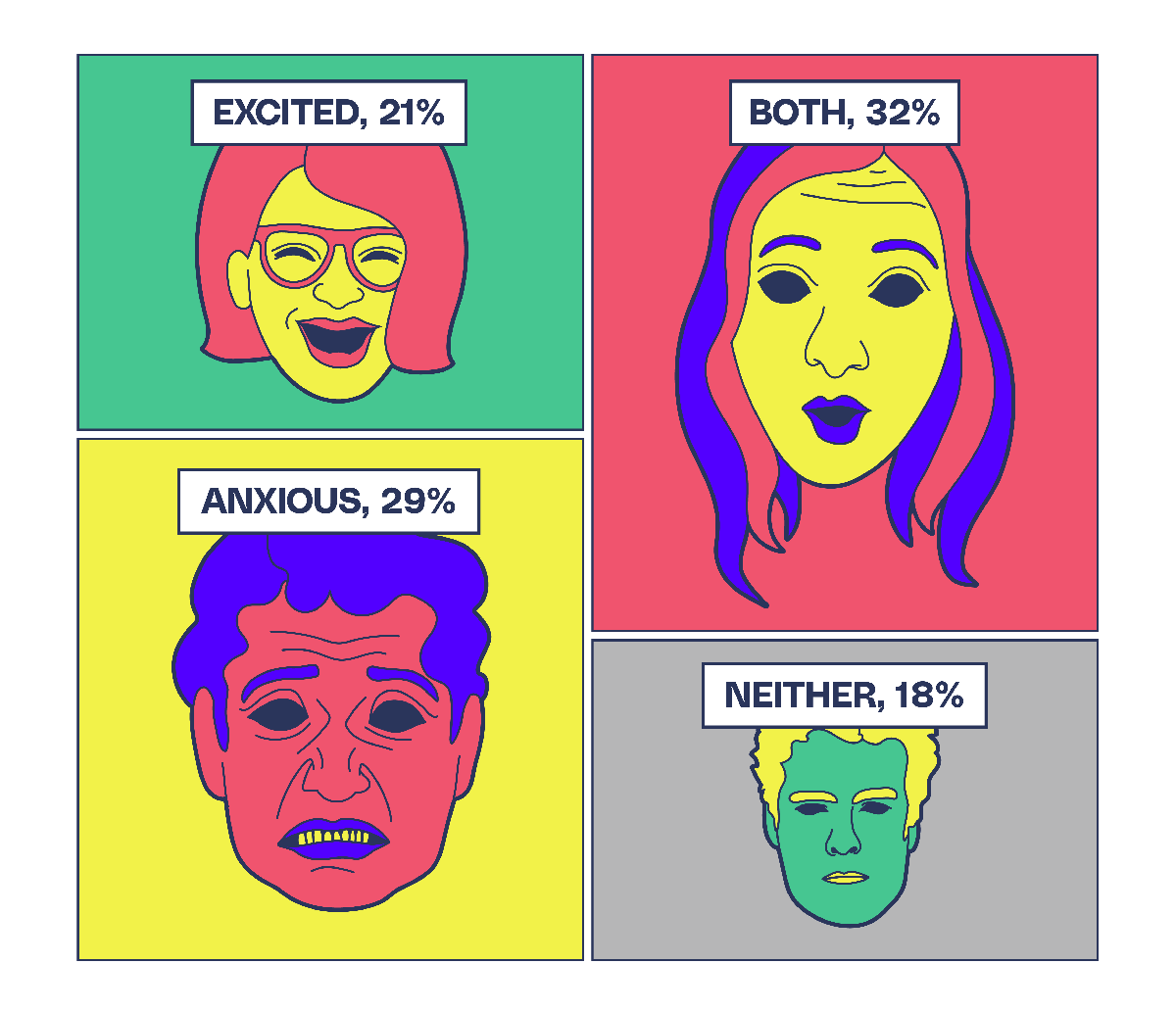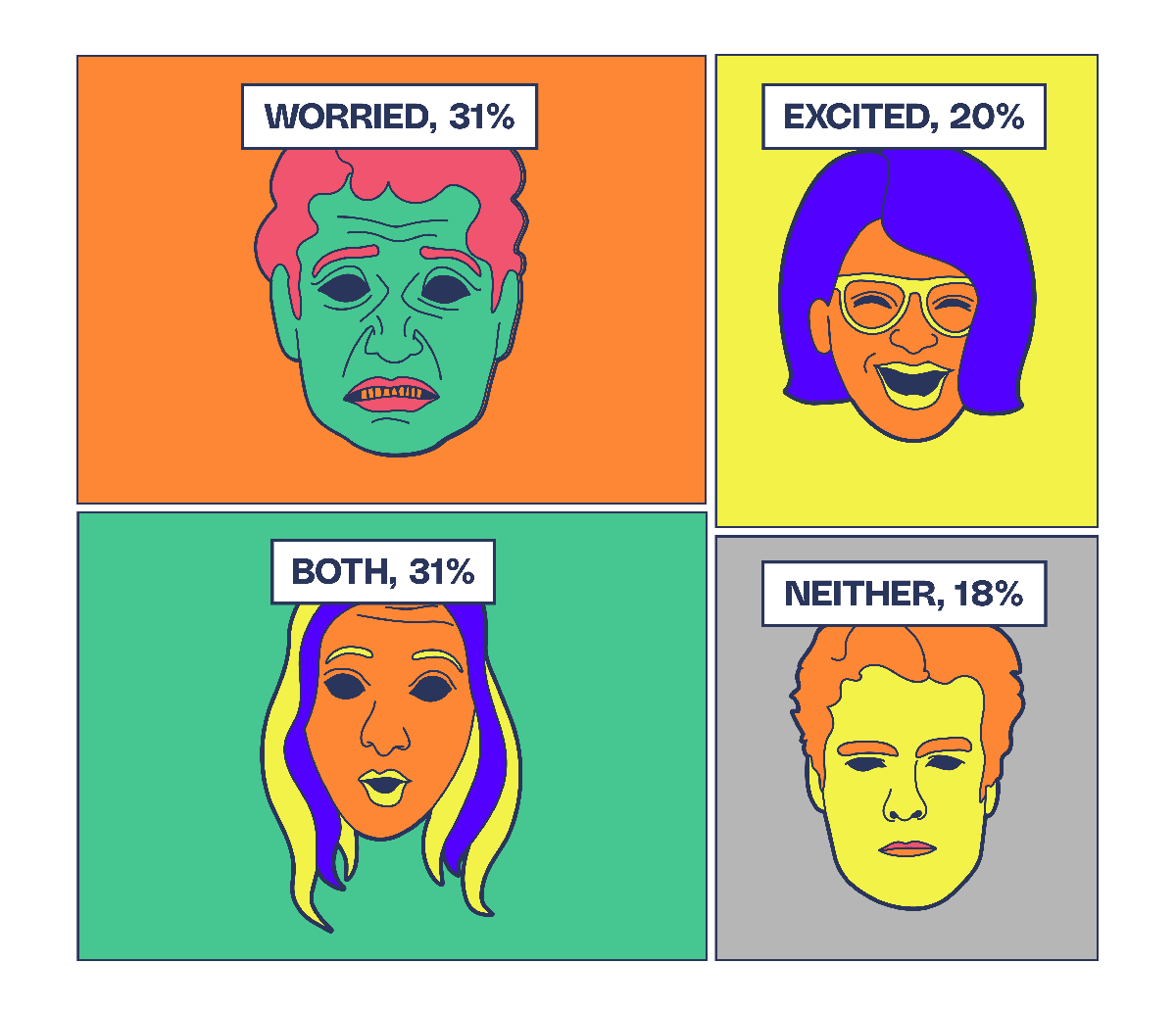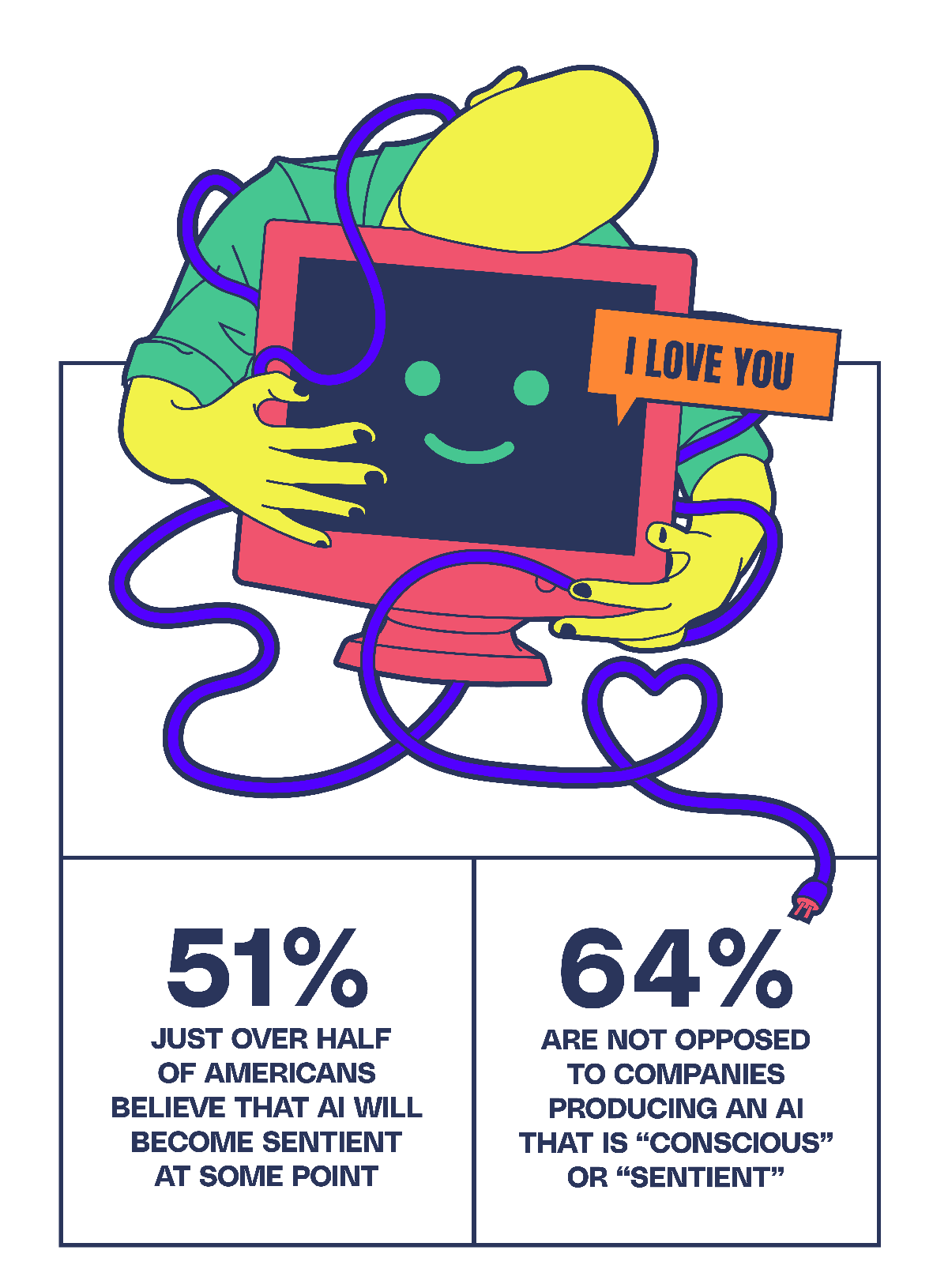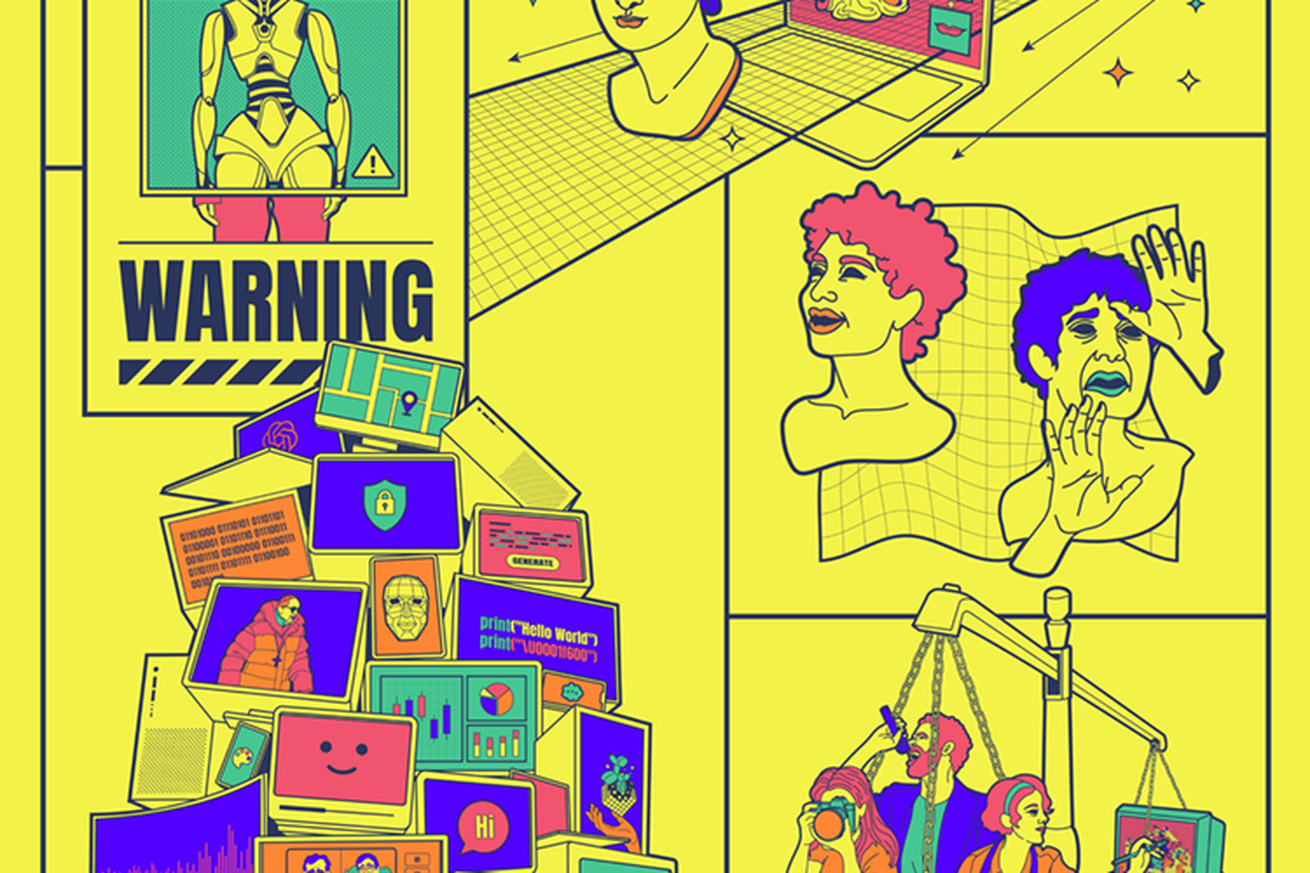
Hope, fear, and AI
AI futures: excited, worried, and both at once
The animal spirits surrounding AI are decidedly ambivalent but lean, just slightly, toward pessimism.
When trying to predict the effect of AI on society, people forecast all sorts of dangers, from job losses (63 percent) to privacy threats (68 percent) and government and corporate misuse (67 percent). These dangers are weighted more heavily than potential positive applications, like new medical treatments (51 percent) and economic empowerment (51 percent). And when asked how they feel about the potential impact on their personal and professional life and on society more generally, people are pretty evenly split between worried and excited. Most often, they’re both.
How do people feel about AI’s impact on society?

| When you think about AI’s potential impact on society, does it make you feel more anxious or excited? | Total |
|---|---|
| I’m more excited than I am anxious | 21% |
| I’m equally excited as I am anxious | 32% |
| I’m more anxious than I am excited | 29% |
| I’m neither anxious nor excited | 18% |
Quite a surprising number of people also consider the more adventurous predictions for AI to be reasonable outcomes. Fifty-six percent of respondents think “people will develop emotional relationships with AI,” and 35 percent of people said they’d be open to doing so if they were lonely.
Many people in the AI world are currently warning about the “existential risk” posed by AI systems — the hotly contested idea that superintelligent AI could doom humanity. If they want to speak to the population, they’ll find more than a few in agreement, with 38 percent agreeing with the statement that AI will wipe out human civilization. Perhaps that’s why more people are worried than not.
…and what about AI’s impact on personal life and jobs?

| When you think about AI’s potential impact on your personal and professional life, are you more worried or excited? | Total |
|---|---|
| I’m more excited than I am anxious | 20% |
| I’m equally excited as I am anxious | 31% |
| I’m more anxious than I am excited | 31% |
| I’m neither anxious nor excited | 18% |
Appropriate to the uncertainty around AI, there’s an expansive openness to the idea of what could happen next. Roughly half of US adults expect that a sentient AI will emerge at some point in the future — and close to two-thirds don’t have an issue with companies trying to make one. If you already feel like there are too many concerns to grapple with when it comes to AI, you’d better hope we don’t get there.
If companies want to make AI sentient, most people won’t stand in the way

| Question | Agree |
|---|---|
| Companies should not be allowed to produce an AI that is ‘conscious’ or ‘sentient’ | 36% |
| AI will become sentient at some point | 51% |

